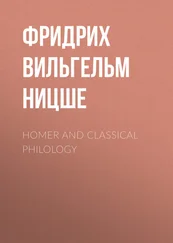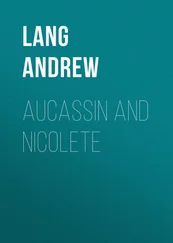Andrew Lang - Homer and His Age
Здесь есть возможность читать онлайн «Andrew Lang - Homer and His Age» — ознакомительный отрывок электронной книги совершенно бесплатно, а после прочтения отрывка купить полную версию. В некоторых случаях можно слушать аудио, скачать через торрент в формате fb2 и присутствует краткое содержание. Жанр: foreign_antique, foreign_prose, на английском языке. Описание произведения, (предисловие) а так же отзывы посетителей доступны на портале библиотеки ЛибКат.
- Название:Homer and His Age
- Автор:
- Жанр:
- Год:неизвестен
- ISBN:нет данных
- Рейтинг книги:5 / 5. Голосов: 1
-
Избранное:Добавить в избранное
- Отзывы:
-
Ваша оценка:
- 100
- 1
- 2
- 3
- 4
- 5
Homer and His Age: краткое содержание, описание и аннотация
Предлагаем к чтению аннотацию, описание, краткое содержание или предисловие (зависит от того, что написал сам автор книги «Homer and His Age»). Если вы не нашли необходимую информацию о книге — напишите в комментариях, мы постараемся отыскать её.
Homer and His Age — читать онлайн ознакомительный отрывок
Ниже представлен текст книги, разбитый по страницам. Система сохранения места последней прочитанной страницы, позволяет с удобством читать онлайн бесплатно книгу «Homer and His Age», без необходимости каждый раз заново искать на чём Вы остановились. Поставьте закладку, и сможете в любой момент перейти на страницу, на которой закончили чтение.
Интервал:
Закладка:
Gifts of atonement for "surquedry," like that of Agamemnon, are given and received in the French epics, for example, in the {blank space}. The Iliad throughout exhibits much interest in such gifts, and in the customary law as to their acceptance, and other ritual or etiquette of reconciliation. This fact, it will be shown, accounts for a passage which critics reject, and which is tedious to our taste, as it probably was tedious to the age of the supposed late poets themselves. (Book XIX.). But the taste of a feudal audience, as of the audience of the Saga men, delighted in "realistic" descriptions of their own customs and customary law, as in descriptions of costume and armour. This is fortunate for students of customary law and costume, but wearies hearers and readers who desire the action to advance. Passages of this kind would never be inserted by late poets, who had neither the knowledge of, nor any interest in, the subjects.
To return to Achilles, he is now within his right; the moral goddess assures him of that, and he is allowed to give the reins to his tongue, as he does in passages to which the mediaeval epics offer many parallels. In the mediaeval epics, as in Homer, there is no idea of recourse to a duel between the Over-Lord and his peer. Achilles accuses Agamemnon of drunkenness, greed, and poltroonery. He does not return home, but swears by the sceptre that Agamemnon shall rue his outrecuidance when Hector slays the host. By the law of the age Achilles remains within his right. His violent words are not resented by the other peers. They tacitly admit, as Athene admits, that Achilles has the right, being so grievously injured, to "renounce his fealty," till Agamemnon makes apology and gives gifts of atonement. Such, plainly, is the unwritten feudal law, which gives to the Over-Lord the lion's share of booty, the initiative in war and council, and the right to command; but limits him by the privilege of the peers to renounce their fealty under insufferable provocation. In no Book is Agamemnon so direfully insulted as in the First, which is admitted to be of the original "kernel." Elsewhere the sympathy of the poet occasionally enables him to feel the elements of pathos in the position of the over-tasked King of Men.
As concerns the apology and the gifts of atonement, the poet has feudal customary law and usage clearly before his eyes. He knows exactly what is due, and the limits of the rights of Over-Lord and prince, matters about which the late Ionian poets could only pick up information by a course of study in constitutional history – the last thing they were likely to attempt – unless we suppose that they all kept their eyes on the "kernel," and that steadily, through centuries, generations of strollers worked on the lines laid down in that brief poem.
Thus the poet of Book IX. – one of "the latest expansions," – thoroughly understands the legal and constitutional situation, as between Agamemnon and Achilles. Or rather all the poets who collaborated in Book IX., which "had grown by a process of accretion," {Footnote: Leaf, Iliad, vol. i. p. 371.} understood the legal situation.
Returning to the poet's conception of Agamemnon, we find in the character of Agamemnon himself the key to the difficulties which critics discover in the Second Book. The difficulty is that when Zeus, won over to the cause of Achilles by Thetis, sends a false Dream to Agamemnon, the Dream tells the prince that he shall at once take Troy, and bids him summon the host to arms. But Agamemnon, far from doing that, summons the host to a peaceful assembly, with the well-known results of demoralisation.
Mr. Leaf explains the circumstances on his own theory of expansions compiled into a confused whole by a late editor. He thinks that probably there were two varying versions even of this earliest Book of the poem. In one (A), the story went on from the quarrel between Agamemnon and Achilles, to the holding of a general assembly "to consider the altered state of affairs." This is the Assembly of Book H, but debate, in version A, was opened by Thersites, not by Agamemnon, and Thersites proposed instant flight! That was probably the earlier version.
In the other early version (B), after the quarrel between the chiefs, the story did not, as in A, go on straight to the Assembly, but Achilles appealed to his mother, the fair sea-goddess, as in our Iliad, and she obtained from Zeus, as in the actual Iliad , his promise to honour Achilles by giving victory, in his absence, to the Trojans. The poet of version B, in fact, created the beautiful figure of Thetis, so essential to the development of the tenderness that underlies the ferocity of Achilles. The other and earliest poet, who treated of the Wrath of the author of version A, neglected that opportunity with all that it involved, and omitted the purpose of Zeus, which is mentioned in the fifth line of the Epic. The editor of 540 B.C., seeing good in both versions, A and B, "combined his information," and produced Books I. and II. of the ILIAD as they stand. {Footnote: Leaf, Iliad , vol. i. p. 47.}
Mr. Leaf suggests that "there is some ground for supposing that the oldest version of the Wrath of Achilles did not contain the promise of Zeus to Thetis; it was a tale played exclusively on the earthly stage." {Footnote: Ibid , vol. i. p. xxiii.} In that case the author of the oldest form (A) must have been a poet very inferior indeed to the later author of B who took up and altered his work. In his version, Book I. does not end with the quarrel of the princes, but Achilles receives, with all the courtesy of his character, the unwelcome heralds of Agamemnon, and sends Briseis with them to the Over-Lord. He then with tears appeals to his goddess-mother, Thetis of the Sea, who rose from the grey mere like a mist, leaving the sea deeps where she dwelt beside her father, the ancient one of the waters. Then sat she face to face with her son as he let the tears down fall, and caressed him, saying, "Child, wherefore weepest thou, for what sorrow of heart? Hide it not, tell it to me; that I may know it as well as thou." Here the poet strikes the keynote of the character of Achilles, the deadly in war, the fierce in council, who weeps for his lost lady and his wounded honour, and cries for help to his mother, as little children cry.
Such is the Achilles of the Iliad throughout and consistently, but such he was not to the mind of Mr. Leaf's probably elder poet, the author of version A. Thetis, in version B, promises to persuade Zeus to honour Achilles by making Agamemnon rue his absence, and, twelve days after the quarrel, wins the god's consent.
In Book II. Zeus reflects on his promise, and sends a false Dream to beguile Agamemnon, promising that now he shall take Troy. Agamemnon, while asleep, is full of hope; but when he wakens he dresses in mufti, in a soft doublet, a cloak, and sandals; takes his sword (swords were then worn as part of civil costume), and the ancestral sceptre, which he wields in peaceful assemblies. Day dawns, and "he bids the heralds…" A break here occurs, according to the theory.
Here ( Iliad , Book II., line 50) the kernel ceases, Mr. Leaf says, and the editor of 540 B.C. plays his pranks for a while.
The kernel (or one of the two kernels), we are to take up again at Book II., 443-483, and thence "skip" to XI. 56, and now "we have a narrative masterly in conception and smooth in execution," {Footnote: Iliad , vol. i. p. 47.} says Mr. Leaf. This kernel is kernel B, probably the later kernel of the pair, that in which Achilles appeals to his lady mother, who wins from Zeus the promise to cause Achaean defeat, till Achilles is duly honoured. The whole Epic turns on this promise of Zeus, as announced in the fifth, sixth, and seventh lines of the very first Book. If kernel A is the first kernel, the poet left out the essence of the plot he had announced. However, let us first examine probable kernel B, reading, as advised, Book II. 1-50, {blank space}; XI. 56 ff.
Читать дальшеИнтервал:
Закладка:
Похожие книги на «Homer and His Age»
Представляем Вашему вниманию похожие книги на «Homer and His Age» списком для выбора. Мы отобрали схожую по названию и смыслу литературу в надежде предоставить читателям больше вариантов отыскать новые, интересные, ещё непрочитанные произведения.
Обсуждение, отзывы о книге «Homer and His Age» и просто собственные мнения читателей. Оставьте ваши комментарии, напишите, что Вы думаете о произведении, его смысле или главных героях. Укажите что конкретно понравилось, а что нет, и почему Вы так считаете.












